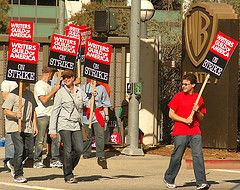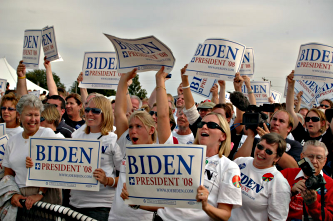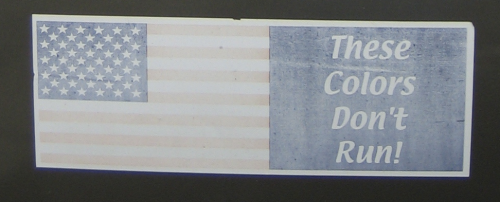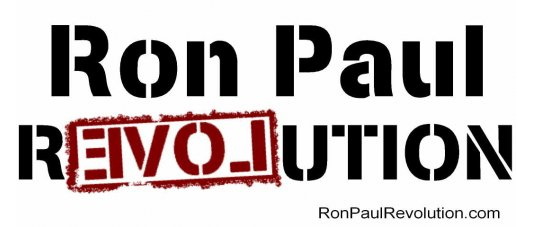CNN's Self-Importance is Beyond Debate
At last night's Democratic presidential debate in Las Vegas, CNN moderator Wolf Blitzer spoke for more time than five of the seven candidates, repeatedly getting in the way of substantive discussion by reducing issues to yes/no options. But it wasn't until the audience got its chance to ask questions that the CNN team demonstrated how inflated in self-importance our leading broadcast journalists have become during presidential campaigns.
After a commercial break, undecided voter LaShannon Spencer posed the following question, which was greeted with applause by the crowd: "We constantly hear health care questions and questions pertaining to the war. But we don't hear questions pertaining to the Supreme Court justice or education. My question is, if you are elected president, what qualities must the appointee possess?"
This question was the first posed about the court during the debate, and the audience greeted it with applause. But Suzanne Malveaux, the CNN anchor assigned to audience duty, couldn't leave it alone and let the candidates speak. She added a question of her own: "I'd like to get to Senator Dodd, if you would. And in answering that question, also tell us whether or not you would require your nominees to support abortion rights."
After Dodd answered the question, Blitzer posed it to all of the candidates: "All right, let's go through the whole panel. I want everybody to weigh in. This is an important question that was raised. I'll start with Senator Biden. Would you insist that any nominee for the U.S. Supreme Court supported abortion rights for women?"
Last night's voter questions were better and more serious than the ones asked by CNN (with one exception at the end). On the court question, Blitzer and Malveaux reduced the voter to a prop, replacing her question with their own and telling the audience how "important" it was.
The arrogance was so apparent that Sen. Joe Biden, much to his credit, chided them for it:
Biden: Suzanne's decided. I'm not answering her question. I'm answering the question of the woman who is there. Okay? (Cheers, applause.) And -- number one. And then I'll answer Suzanne's question.
Blitzer: Well, let's ask the woman. Do you want him to answer that question?
Biden: Do you want me to answer your question?
Spencer: I would like for you to answer both questions.
Despite the admonishment, Malveaux did it again as the debate was drawing to a close.
Frank Perconte, a student at UNLV where the debate was being held, posed this question: "Whether it's the continuing violence in Iraq, or if it's a potential confrontation with Iran, or even the emerging instability in Pakistan, nothing seems to be getting any better in the Middle East. It only seems to be getting worse. And if the upcoming election is anything like the last two elections, if any of you is elected, in all likelihood, you'll be presiding over an extremely divided electorate. Almost half the country is not going to agree with you on the direction you want to take this country to meet those challenges in the Middle East. So my question to you is, assuming you are elected, the day after you take the oath of office, what message will you offer the whole country, to unite all of us behind you, so that you can see us through this period of transition that we're in?"
Malveaux couldn't just direct this question to candidates and let them run with it. She responded, "I'd like to refer that to Senator Obama. Senator Obama, you said on a TV interview just this past weekend, you didn't believe that Senator Clinton was able to unite this country. Why do you believe she can't?"
In the movie Broadcast News, Albert Brooks plays a high-minded TV reporter who finds his business being taken over by telegenic celebrity anchors and ratings-obsessed entertainment. Watching a colleague shed a tear on the air during an interview, Brooks laments, "Let's never forget, we're the real story, not them."
Like every film decrying the state of broadcast journalism, the film has proven to be prophetic. Sharing a stage in Vegas with the next Democratic nominee for president, Blitzer and Malveaux acted like they were the real story. But we're the ones who should be crying.
Supporting the Writers Guild Strike
 I'm in full support of the 10-day-old Writers Guild strike, which you can follow by reading their strike blog United Hollywood and television writer Mark Evanier's News From Me blog. There's a lot of money being made in DVD sales and online viewing of TV shows, and writers get bupkiss, as Lost head writer Damon Lindelof explains:
I'm in full support of the 10-day-old Writers Guild strike, which you can follow by reading their strike blog United Hollywood and television writer Mark Evanier's News From Me blog. There's a lot of money being made in DVD sales and online viewing of TV shows, and writers get bupkiss, as Lost head writer Damon Lindelof explains:
My show, Lost, has been streamed hundreds of millions of times since it was made available on ABC's Web site. The downloads require the viewer to first watch an advertisement, from which the network obviously generates some income. The writers of the episodes get nothing. We're also a hit on iTunes (where shows are sold for $1.99 each). Again, we get nothing. ...
I am angry because I am accused of being greedy by studios that are being greedy. I am angry because my greed is fair and reasonable: if money is made off of my product through the Internet, then I am entitled to a small piece. The studios' greed, on the other hand, is hidden behind cynical, disingenuous claims that they make nothing on the Web -- that the streaming and downloading of our shows is purely "promotional." Seriously?
I sent Evanier an email asking how strike-supporting viewers can help put the screws to producers and force a deal. I won't be happy if this strike ends up killing my soaps, which have been teetering on the brink of doom and would be unlikely to survive if they stopped broadcasting new episodes for any length of time. It would be particularly cruel if General Hospital were cancelled so soon after Kelly Monaco's character bought a hot tub. Evanier's advice: "Don't watch reruns and filler shows. Complain about them." I can do that, no matter how much my TiVo wants me to catch up on Ugly Betty.
One of the only perks of a strike in the entertainment business is that the pickets are entertaining, like this rant by Everybody Hates Chris producer Ali LeRoi and series star Todd Bridges.
"We got kids, man," LeRoi said. "How do you think Todd Bridges ended up on crack? He was broke. We don't want our kids to end up on crack; give us our DVD money."
Credit: The strike photo was taken by NoHoDamon and is available under the Creative Commons Attribution license.
Obama Hits Wrong Note with National Anthem
Of all the presidential candidates to make their feelings known about symbolic expressions of patriotism like flag lapel pins and the National Anthem, none has been more candid than Sen. Barack Obama -- hands down.
In early October, Obama told a TV reporter in Iowa that he had made a conscious decision to stop wearing a flag pin on his lapel, a standard fashion accessory for American politicians since 9/11.
"You know, the truth is that right after 9/11, I had a pin," Obama said. "Shortly after 9/11, particularly because as we're talking about the Iraq War, that became a substitute for I think true patriotism, which is speaking out on issues that are of importance to our national security, I decided I won't wear that pin on my chest. Instead, I'm going to try to tell the American people what I believe will make this country great, and hopefully that will be a testimony to my patriotism."
Obama's explanation impressed people who are sick of empty patriotic gestures like leaving a "These Colors Don't Run" bumper sticker on your SUV for so long that it fades. But his decision to make this reasoning public doesn't make sense at all.
Nothing good can come from being a presidential candidate who explicitly refuses to wear an American flag. It's a discussion you lose just by having, like holding a press conference to declare that you are so not gay.
Yesterday, Obama chose to defend a photo where he's shown with his hand down during the singing of the national anthem at a campaign event in Iowa. (Some reports incorrectly claimed it was during the Pledge of Allegiance.)
"My grandfather taught me how to say the Pledge of Allegiance when I was 2," Obama told a reporter, expressing his annoyance. "During the Pledge of Allegiance you put your hand over your heart. During the national anthem you sing."
For starters, Obama's granddad was wrong. There are four rules you're expected to follow during the anthem, as anyone who attends a sports event knows: Remove your gimme cap, move your beer to your left hand, place your right hand over your heart and mumble the words. (There's one extra rule in Dallas: Yell the word "Stars!")
But with this issue, Obama has once again fed a discussion that gains him nothing and throws a bone to the Lee Atwater memorial wing of the GOP, which can't wait to define this guy in the minds of a public that hasn't formed a strong sense of him yet. While Americans are still getting to know Obama, they're being told that he won't wear a flag pin and doesn't cross his heart during the national anthem. And it's true!
Are there any other symbolic gestures that represent love of country that Obama can go on the record against? "God Bless America" is kind of egotistical! Mom's apple pie is loaded with carbs! The insertion of "Under God" in the pledge was a misunderstanding of what Abraham Lincoln meant! The wings on Captain America's head look stupid and do not confer the power of flight!
Ron Paul: The $4.2 Million Dollar Man
I gave $25 to Ron Paul Monday because I couldn't resist being part of the largest grass-roots fundraising day in the history of American politics. The libertarian Republican raised $4.2 million from 37,000 contributors, according to a final tally provided to USA Today, from an effort that wasn't even organized by the campaign.
The idea to raise his profile with a "money bomb" on Nov. 5 was the brainchild of Trevor Lyman, the publisher of ThisNovember5th.Com. Lyman adopted the incendiary metaphor of Guy Fawkes, using a literal anti-government revolutionary to attract attention to a rhetorical bomb thrower.
In an email Paul sent contributors, the straight-laced doctor sounded more like a child of the '60s than any of the Democratic candidates:
I have to admit being floored by the $4.2 million dollars you raised yesterday for this campaign. And unlike the fatcat operations of the opposition, the average contribution from our 36,672 donors was $103.
I say "you raised," because this historic event was created, organized, and run by volunteers. This is the spirit that has protected American freedom in our past; this is the spirit that is doing so again.
Some of the mainstream media have sat up and taken notice. Others have pooh-poohed our record online fundraising. But the day is coming -- far faster than they know -- when they will not be able to ignore our freedom revolution.
I like Paul, in spite of the fact that I believe in most of the government programs he'd like to see abolished. Liberals can find common cause with Paul on issues like opposition to the Patriot Act, an end to the war in Iraq and preservation of constitutional liberties. (On Social Security, Medicare and the Department of Education not so much.) Paul's one of the most ideologically consistent presidential candidates, voting his beliefs reliably during 29 years in politics, and he's a throwback to the days when Republicans had an uneasy relationship with government. Today's borrow-and-spend Republicans are just as likely to break the bank as the tax-and-spend Democrats of old, but they spend the money on military adventures and corporate welfare instead of social programs, and they lay the bill on our grandkids and great-grandkids.
The chord Paul's striking with disenchanted Americans is impressive, even as they drive right-wing sites like RedState to hysteria with their online activism. The stuff that disciples of Paul are creating on their own has been the most effective campaigning I've seen thus far, like the iconic Ron Paul Revolution banner:
This astounding fund-raising achievement should compel the media to take Paul more seriously, even though he's yet to show enough polling success to be a realistic threat to win the nomination. He's raising money at a faster clip than the other Republican candidates and can carry his effort all the way to Election Day as a third-party candidate, which is where he ran in 1988 as the Libertarian nominee.
Steve Burns Goes From Blues to Rock
Question: Why did you shave your head? are you making a statement?
Answer: Yes. the statement is, "we have male pattern baldness."
This QNA comes from the web site of Steve Burns, the original Blue's Clues host and star of one of the greatest episodes of Homicide: Life on the Street. After leaving the green-striped shirt, salt and pepper shakers, and floppy-eared blue dog behind in 2002, Burns became an indie rocker who pals around with the Flaming Lips and does They Might Be Giants tribute covers.
File this weblog entry under Money, People Who Know What to Do With.
Clinton Skirted Questions in Philly Debate
I caught the last 90 minutes of the Democratic presidential debate at Drexel University Tuesday night, which told me that Hillary Clinton thinks she can win the nomination without telling anyone what she'll do if elected.
 Clinton had a commanding demeanor throughout the night, despite taking shots from every other candidate except for Bill Richardson, who appeared to be running for vice president with one of his answers. "I'm hearing this holier than thou attitude towards Senator Clinton, and it's bothering me because it's pretty close to personal attacks," he said, referring to comments portraying her as untrustworthy. "We need to be positive in this campaign. ... it's important that we save the ammunition for the Republicans."
Clinton had a commanding demeanor throughout the night, despite taking shots from every other candidate except for Bill Richardson, who appeared to be running for vice president with one of his answers. "I'm hearing this holier than thou attitude towards Senator Clinton, and it's bothering me because it's pretty close to personal attacks," he said, referring to comments portraying her as untrustworthy. "We need to be positive in this campaign. ... it's important that we save the ammunition for the Republicans."
The format treated Clinton, John Edwards and Barack Obama as the only candidates worthy of attention, which is a crying shame. Richardson, Joe Biden and Chris Dodd bring impressive credentials to the race and deserve equal time. (Dennis Kucinich's answer to the UFO question would have ended his political career if he had one.)
I'm trying to like Clinton, but all night long her answers were studiously vague. When asked whether she supports New York Gov. Eliot Spitzer's plan to issue driver's licenses to people here illegally, she supported it -- saying the plan "makes a lot of sense" -- before she opposed it -- saying "I did not say that it should be done." When asked whether she supports Rep. Charles Rangel's tax plan to replace the alternative minimum tax, Clinton had to be pressed by moderator Tim Russert before acknowledging that she didn't support it. Even then, she fell back on the hoariest excuse in politics -- claiming more information is needed before she can decide the right approach. Telling people you're going to have a solution is not a solution.
Obama didn't do anything last night to show he's capable of defeating Clinton or will ever aggressively make the case against her. His kinder, gentler approach to politics and soft platitudes about turning the page won't fly in the general election. The Republicans have a formidable spin machine ready to take down the Democratic nominee. Nothing I've seen thus far suggests that Obama can handle it.
In what little time they were given, Biden and Dodd impressed me the most. I'd vote for Biden if the Florida primary was held today, because he's intelligent, mindful of what government can and can't accomplish after 35 years of public life, and is a foreign-policy realist who could get us out of Iraq. He's also engaging as hell and loves the process of bringing the public to your side, a quality sorely lacking in the Decider. Peggy Noonan lamented earlier this month that Democrats don't seem to be taking Biden's campaign seriously. I second that emotion.
Adding Atom:Link to Your RSS Feed
The RSS Profile includes a recommendation to add an atom:link element to an RSS feed to identify its URL, as in this example from my own blog:
<atom:link href="http://feeds.cadenhead.org/workbench" rel="self" type="application/rss+xml" />
To make this work, all I had to do was declare the atom namespace in the feed's rss element:
<rss version="2.0" xmlns:atom="http://www.w3.org/2005/Atom">
The addition of atom:link, by letting an RSS feed reveal its own address, makes the feed easier to cache, send as an email attachment and deliver over file-sharing networks. It's an extremely useful capability that can't be accomplished using a core RSS element.
There's been some controversy over this recommendation, due presumably to the fact that it uses an element from Atom. When you submit an RSS feed to the Feed Validator that doesn't contain the element, you get the warning message "Missing atom:link with rel='self'." This doesn't prevent the feed from being valid, but it has irked some people who expected their feed to pass with no warnings.
Dave Winer wrote on RSS-Public this weekend that he can no longer endorse the validator because it checks for this element:
Okay, I'm not going to argue with you, and I fully expect you to trash me on your blog (which I do read).
But I should say this -- that after a few years of relative peace, I had started recommending and using the validator.
I can't recommend it now, because I can see what's coming next.
And I think you ought to tell the members of your board how you're using their names and company's names. I don't think they understand what you're doing, Rogers.
And that closes this as far as I'm concerned.
I'm not clear on the nefarious plot I am supposedly undertaking, but the profile's just following the lead of RSS publishers who have been adding atom:link in growing numbers. It's the second most popular namespace element in an RSS channel, appearing in 15 percent of all feeds in a survey I conducted in June. Every FeedBurner feed includes one, and on Saturday, WordPress added support.
From my perspective, this is exactly how RSS namespaces are supposed to work. Publishers need to identify a feed's URL, so they have adopted the most popular namespace element that provides this capability. It might throw people a little that the element comes from Atom, since there's a syndication war going on and we takes no prisoners, but it's no different than adding an OPML element to RSS when you want an ownerId for your feed.
But thanks for reading my blog, Dave!



